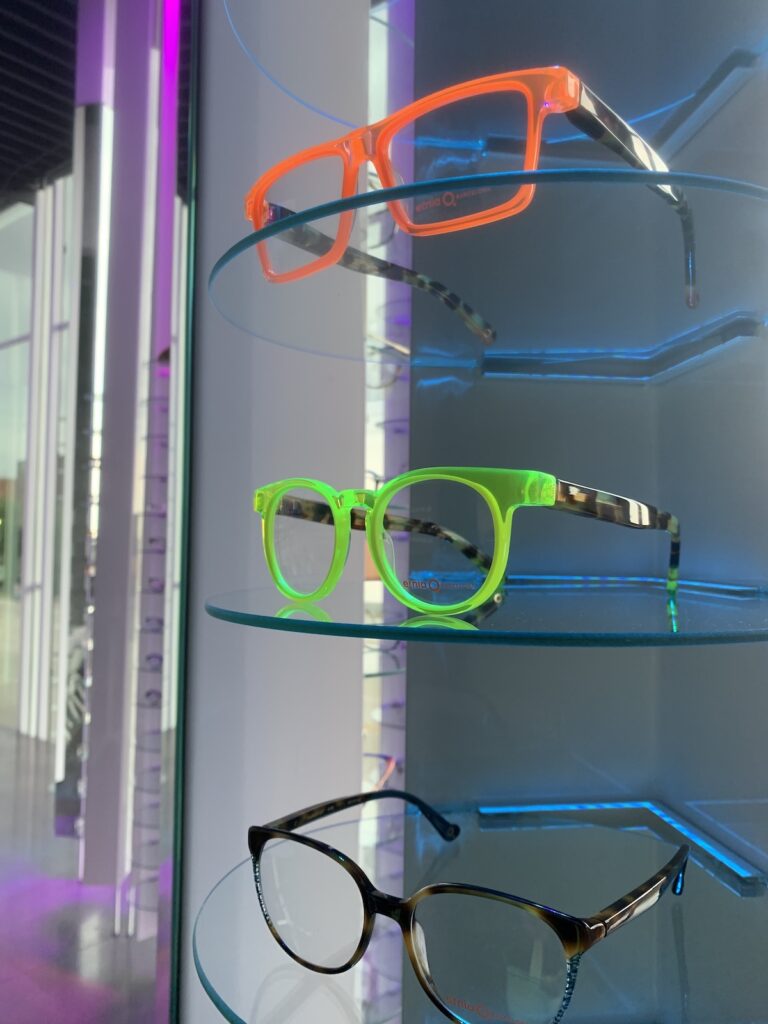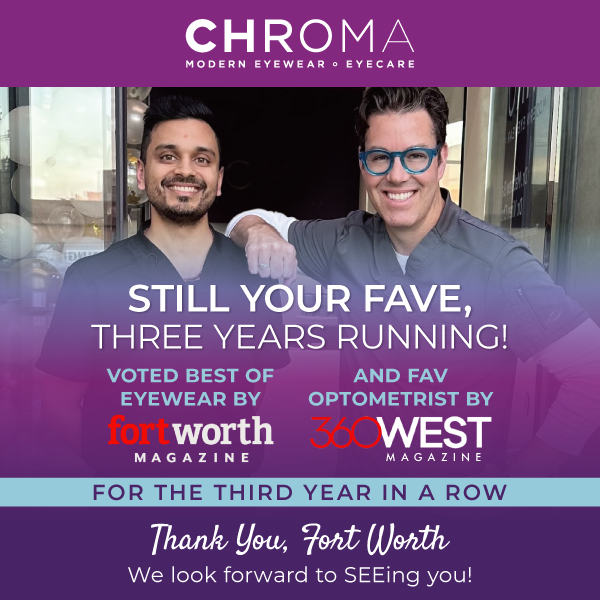Dry eyes can lead to irritation, discomfort, blurry vision, and can impact our overall quality of life. Fortunately, several treatment options are available to target the root cause of dry eyes and provide lasting relief and comfort.
Glasses can help to alleviate symptoms of dry eyes but they don’t target the underlying cause of the condition.
Glasses help provide a physical barrier to environmental conditions, specialized lenses like those of computer glasses help to reduce digital eye strain, and UV protection protects your eyes from further damage.
Understanding Dry Eye Disease
Dry eye disease is common, affecting about 16 million Americans. It occurs when your tears cannot provide adequate lubrication and hydration to the surface of your eyes.
There are two main types of dry eye disease:
- Aqueous-deficient Dry Eye: This occurs when your lacrimal glands don’t produce enough tears to keep your eye lubricated. This is also known as decreased tear production.
- Evaporative Dry Eye: This occurs when your tears evaporate too quickly from the surface of your eye due to insufficient oil production in the tears. This is also known as increased tear evaporation.
Symptoms of dry eyes can range from mild irritation to severe inflammation, including:
- Stinging, burning, or scratchy sensation in your eyes
- Redness and swelling
- Light sensitivity
- Foreign body sensation
- Difficulty wearing contact lenses
- Blurry vision, especially towards the end of the day
What Causes Dry Eyes?
Factors that can lead to decreased tear production include:
- Aging
- Certain medications
- Overwearing contact lenses
Factors that can lead to increased tear evaporation include:
- Environmental conditions (allergies, wind, and dry climates)
- Long periods of screen time
- Meibomian gland dysfunction
Screen time, overuse of contact lenses, and exposure to allergens can each contribute to dry eyes through different mechanisms.
Digital Eye Strain & Dry Eyes
Focusing on digital screens for prolonged periods tends to decrease blinking leading to reduced tear film renewal and increased tear evaporation on the eye’s surface.
Normally, blinking helps to spread tears evenly across the eyes, keeping them moist. When blinking is less frequent, it doesn’t replenish the tear film adequately, resulting in dry eye symptoms.
To mitigate these effects, it’s advisable to take regular breaks from screen time. Try following the 20-20-20 rule. Every 20 minutes look away from your screen, focusing on an object about 20 feet away for at least 20 seconds. Consider using blue-light glasses when using digital screens to help reduce eye strain.
Overuse of Contact Lenses
Contact lenses can disrupt the natural tear film that protects the cornea, especially when worn for extended periods or not properly cared for. This disruption can lead to increased tear evaporation or inadequate tear production.
Extended contact lens wear, especially overnight use, can limit the amount of oxygen reaching the cornea. This can cause corneal stress, leading to dryness and discomfort. This is why it’s critical to practice proper contact lens use and care.
When using extended-wear contact lenses, over time potential contaminants build up on contact lenses, potentially irritating the eyes and contributing to dryness.
If you’re experiencing any irritation in your eyes due to dry eyes, or other eye concerns, it’s important to give your eyes a break from contact lens wear.
Environmental Allergies
Exposure to allergens like pollen, dust, pet dander, or mold triggers an inflammatory response in the eyes. This response can disturb the balance of the tear film, leading to dry eye symptoms.
In response to allergens, the eyes might increase tear production initially to flush out the irritants. However, these tears are often of poorer quality and evaporate quickly, which doesn’t provide lasting relief and can leave the eyes feeling dry.
Allergens can cause itching, leading individuals to rub their eyes. This action can further irritate the eyes and worsen dryness.

How Glasses Help with Dry Eyes
While eyeglasses don’t directly help to treat dry eyes, they can be used alongside treatment options to provide additional relief.
Glasses can act as a physical barrier to protect your eyes from environmental irritants such as dust and pollen, which can be an allergen trigger and cause dry eyes. Glasses help to block wind and smoke, which can lead to dry eyes. For others, these environmental triggers can exacerbate their dry eye symptoms.
Some individuals may have dry eye symptoms that are exacerbated by digital eye strain. Computer glasses that are specifically designed to have a very wide field of view help to reduce the strain on your eyes after a long day of working on the computer.
UV protection on glasses will help protect your eyes from the sun. Exposure to UVA and UVB over the long term is damaging and can impact your eyes’ abilities to function, including their ability to produce high quality tears.
Dry Eye Therapy
While glasses offer a form of relief, they don’t treat the root cause of dry eyes. It’s important to visit us at CHROMA modern Eyewear Eyecare if you’re experiencing persistent symptoms of dry eyes.
A comprehensive exam can determine the underlying cause of your dry eyes which helps to create a treatment plan tailored to an individual’s ocular needs
Depending on the diagnosis and underlying cause of your dry eye. For mild dry eye, we optometrist may recommend:
- Artificial Tears: These lubricating eye drops stimulate real tears to provide relief for mild to moderate dry eyes.
- Prescription Eye Drops: For more severe cases, your optometrist may prescribe medicated eye drops to address specific causes of dry eyes.
- Warm Compress: Using a warm compress over the eyes and massaging around the area can help unclog oil glands and reduce eye inflammation.
- Lifestyle Adjustments: Simple changes, such as taking regular breaks during screen time, using a humidifier, staying hydrated, and adding omega-3s and vitamin A to your diet can help provide comfort.
For severe dry eye cases, our eye Doctors may recommend undergoing the following advanced therapies:
- Amniotic Membranes: This treatment uses tissues that are implanted directly over the surface of the eyes to help treat and prevent damage caused by dry eyes.
- Autologous Serum Drops: These custom eye drops are made from your blood serum. They are rich in nutrients and immunoprotective proteins. These serum drops help to reduce inflammation and promote overall ocular health.
- Punctal Plugs: These are small devices inserted into tear ducts to reduce tear drainage, keeping the eyes more lubricated. These can be temporary or semi-permanent.
It’s important to treat dry eyes. If left untreated, dry eyes can lead to severe eye inflammation, corneal damage, and vision loss.
Book a Consultation
While glasses can provide relief for dry eyes, they don’t target the root cause of dry eyes. To help develop a treatment plan suitable for your ocular needs, visit our Doctors at CHROMA modern Eyewear Eyecare to determine the underlying cause of dry eyes.
Connect with our team at CHROMA modern Eyewear Eyecare to learn about which dry eye therapy is most suitable for you. We’ll also make sure you leave with an awesome pair of frames to look your best!
For maximum convenience you can call us, book online, or even text us to schedule an appointment.



